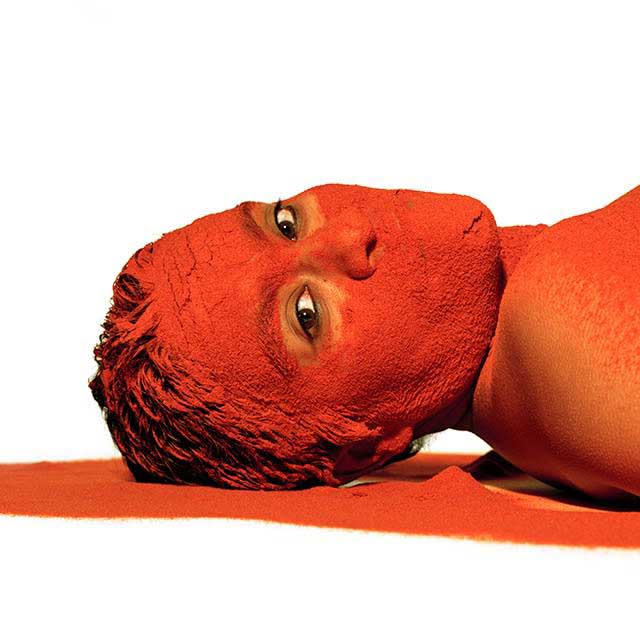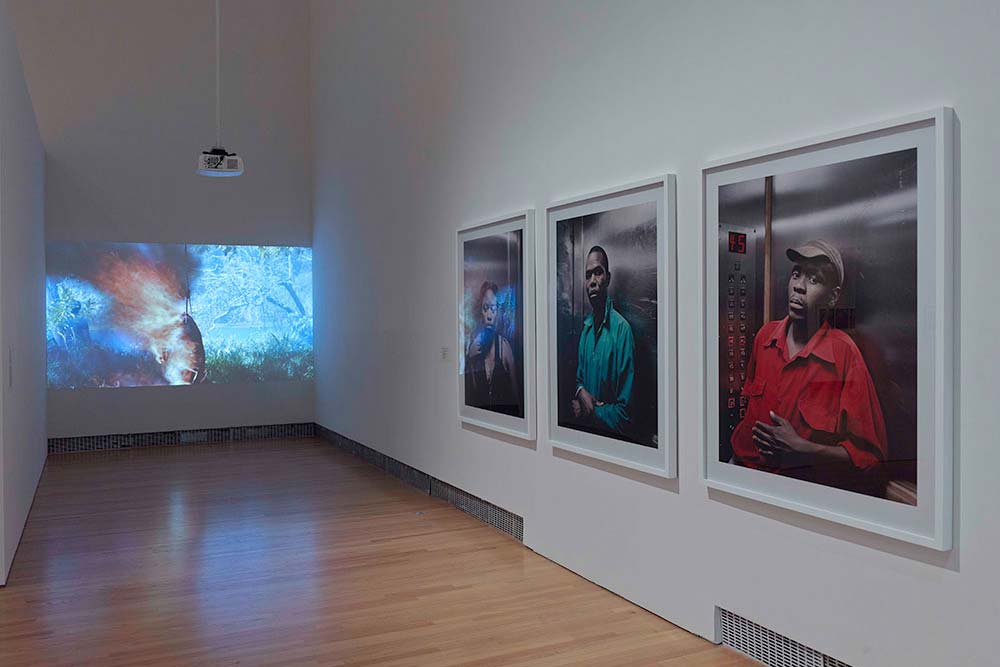Berni Searle was born in 1964 in Cape Town, where she currently lives and works. Searle works with lens-based mediums—photography, video, and film—and focuses primarily on narratives of gender, race, and memory as they have been configured in apartheid and post-apartheid South Africa. While her work is intertwined with South African history that has emerged from apartheid, her poetic and abstract imagery transcends the specific to address ideas about belonging and displacement in various contexts. Searle’s works are often autobiographical and challenge the viewer to confront his or her own role as voyeur of the demarcated, “othered” body. In fact, her works often feature her own body, suggesting autobiographical narratives as well as focusing more broadly on issues of gender, race, memory, and classification in relation to South African and colonial history.
Since 1999, Searle’s work has been featured in numerous solo and group exhibitions in South Africa, the United States, and Europe, including at the Fowler Museum, University of California, Los Angeles (2014), the National Museum of African Art, Smithsonian Institution, Washington DC (2013), La Galerie Particulière, Paris (2013), the Walther Collection, Ulm, Germany (2013), De Hallen, the Belfry Tower, Bruges, Belgium (2011), FRAC Lorraine, Metz, France (2011), Museum voor Moderne Kunst Arnhem, the Netherlands (2011), Stevenson Gallery, Cape Town (2011), the Museum of Modern Art, New York (2011 and 2007), Mendel Art Gallery, Saskatoon, Canada (2011), FADA Gallery, University of Johannesburg (2011), the Victoria and Albert Museum, London (2011), the Brooklyn Museum (2007), and the Venice Biennale (2005 and 2001). She received the Minister of Culture Prize at the 2000 Dakar Biennale and the UNESCO/AICA Award at the 1998 Cairo Biennale. She was recently named a 2014 Rockefeller Bellagio Creative Arts Fellow.



